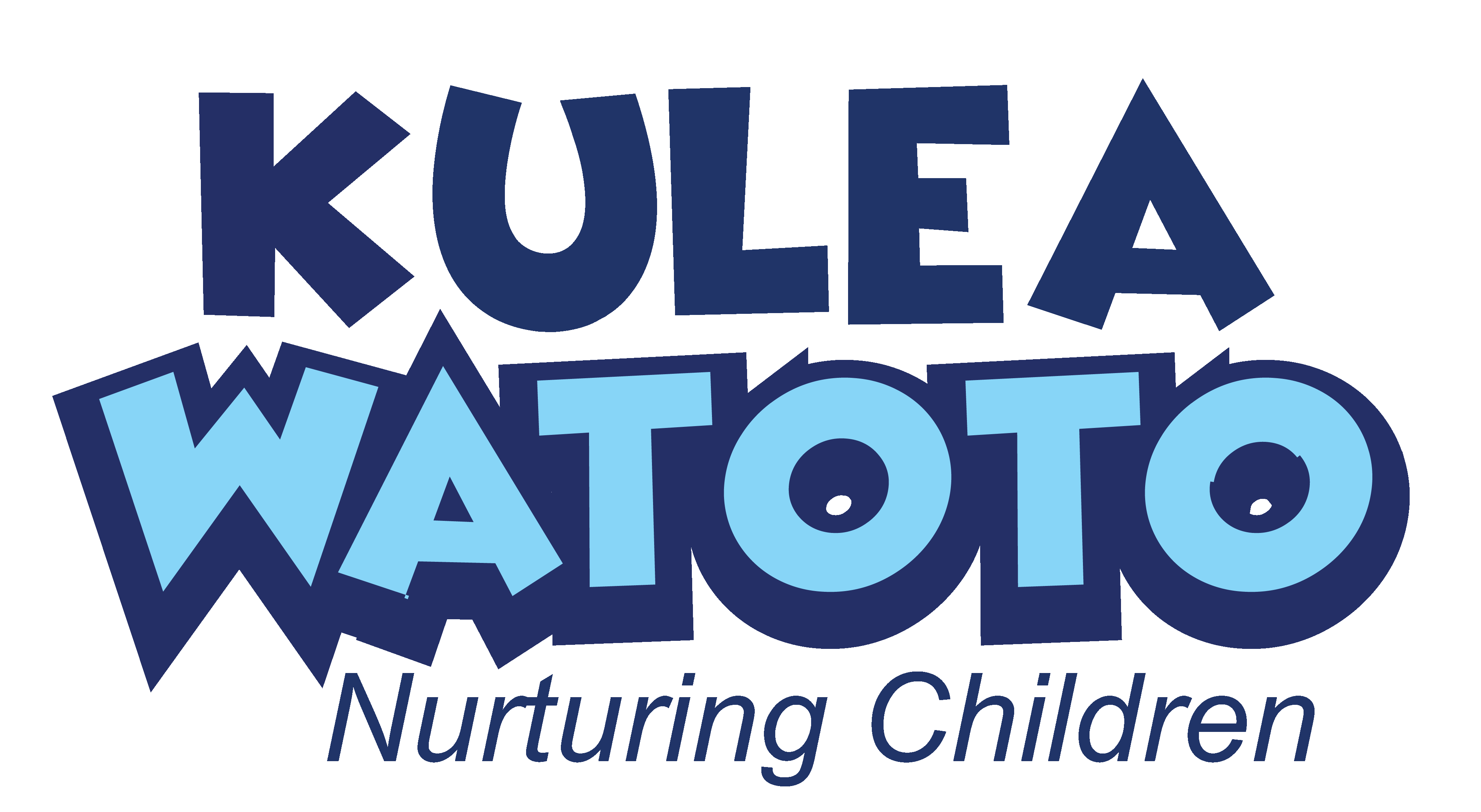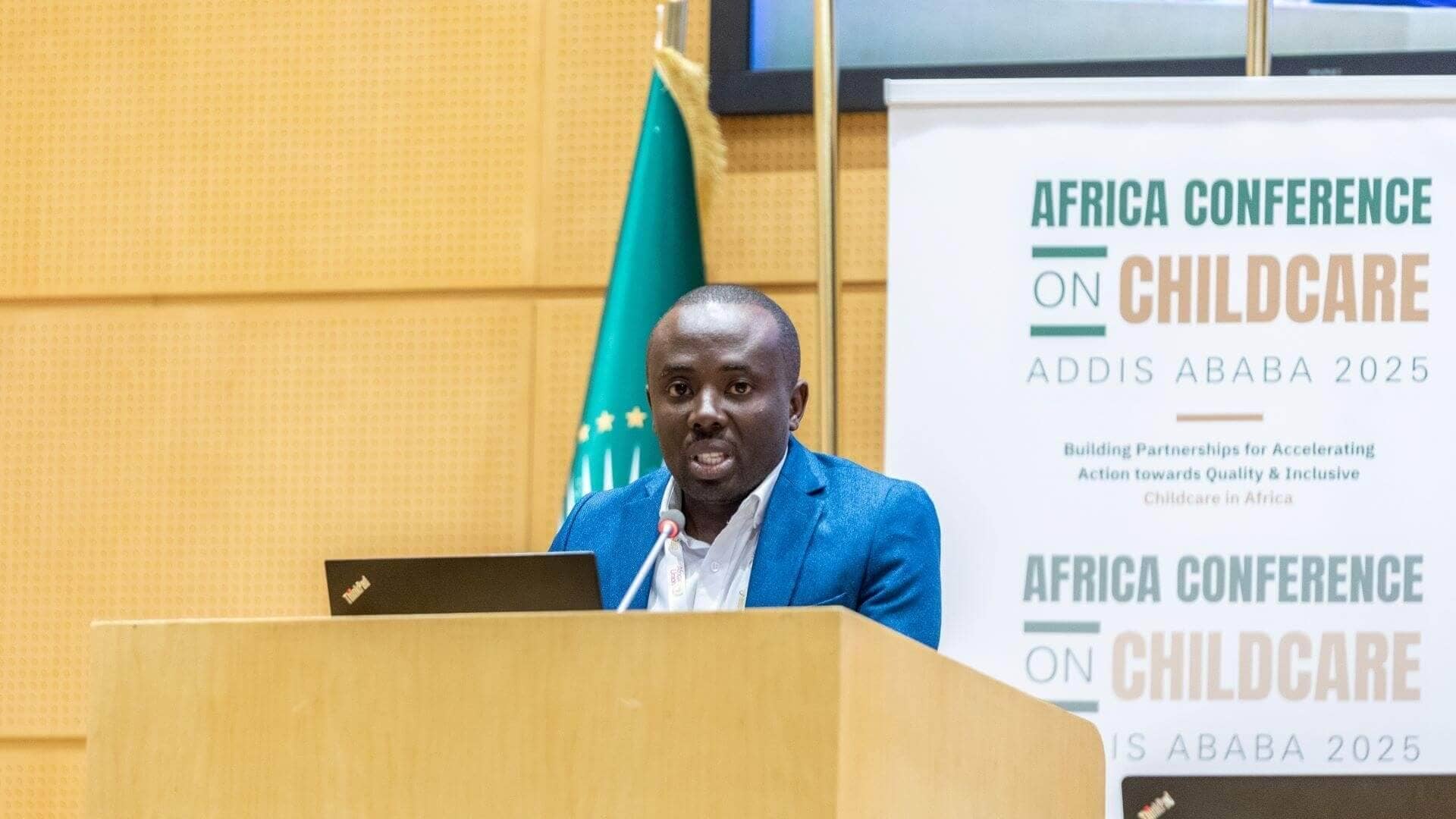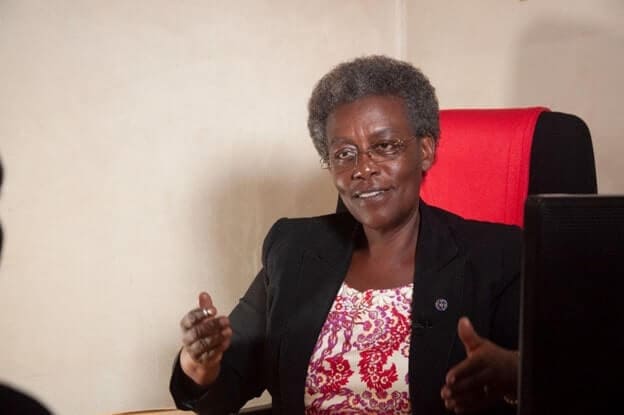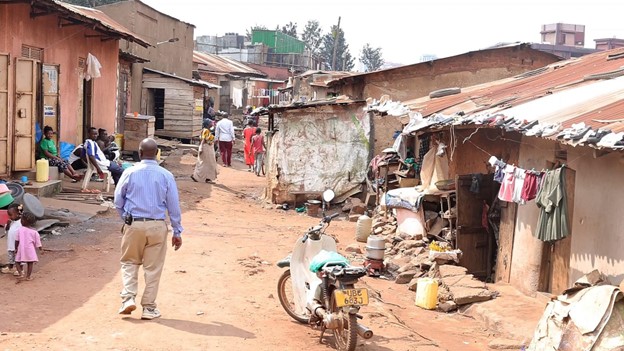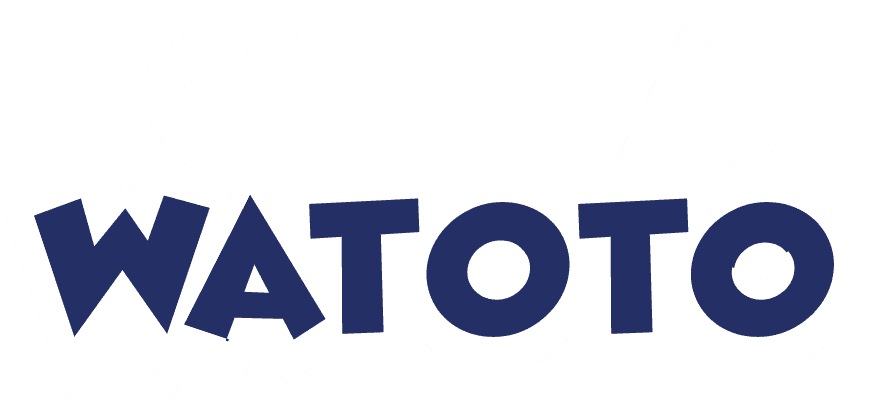Crafting Hope: Francis Banda's Chalk-Making Triumph
Crafting Hope: Francis Banda's Chalk-Making Triumph
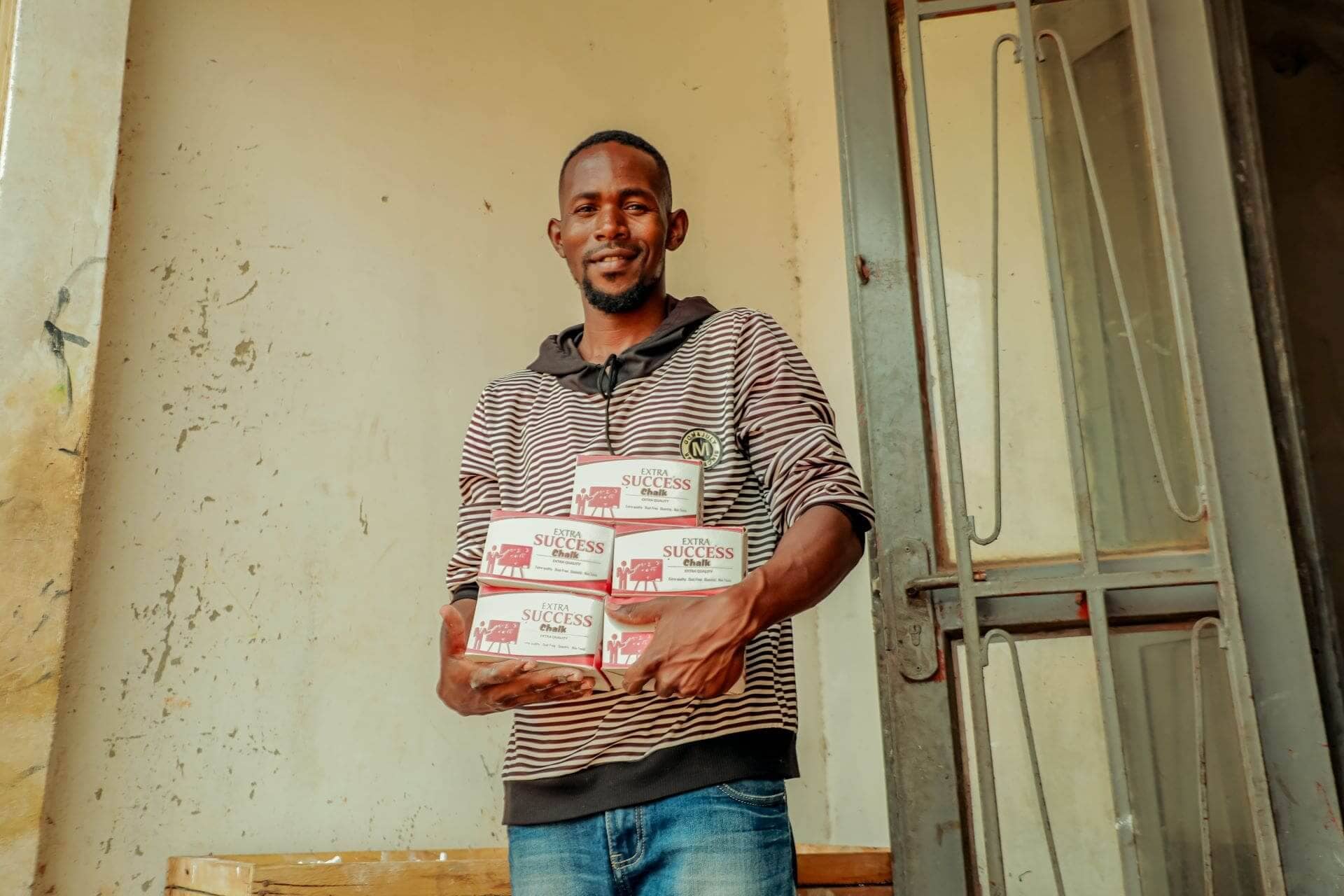
Francis Banda, a client under the Kulea Watoto Project, displays boxes of chalk ready for hit the market. Francis is grateful to the project for the skills in financial management and nurturing children that have made him a better father and businessman
Francis Banda, a 33-year-old refugee from South Sudan and a devoted father of three, faced immense challenges upon arriving in Uganda in 2019. Struggling to find work, he turned to entrepreneurship with just Shs.1 million (about $300) in hand. His venture? Making chalk.
“I noticed that there are more than 40 schools in this area, so I sought to provide them with something they needed,” he recalls.
Armed with a smartphone and a determination to succeed, Banda immersed himself in research, learning the art of chalk-making through YouTube tutorials. With newfound skills and a burning desire, he launched his business.
However, the initial excitement quickly gave way to harsh reality. Despite having a ready market, Banda struggled to produce enough chalk to meet the growing demand. As he poured his savings into the venture, the weight of financial stress began to take its toll. He fell behind on essential bills, including school fees for his young children, rent, and basic necessities like food and medicine.
His fortunes, however, began to shift when he was enrolled in the Kulea Watoto. As a father of two children under six, he qualified for support from the project. On enrolment, he was trained in financial literacy, vision mapping, mindset change, the benefits of saving, and how to nurture children below the age of 06 years. The latter stood out for him.
“The training on how to care for children changed my life,” he reflects. “I used to think it was solely my wife’s role to attend to our children, but I learned that it’s vital to love, listen to, and play with my children. This bond, I can see now, is helping them grow into happy and positive children. I also learnt the benefits of feeding my children on a balanced diet, and this has enabled them to grow healthy and strong.”
Upon completing the training, Banda received a cash grant of Shs. 810,000. With this financial support, he purchased a larger chalk molding machine capable of producing 400 sticks in a single run. Now, as he operates in his unfinished rented space in Makindye, his hands coated with white residue of wet chalk, a spread of freshly molded chalk sticks dries under the scorching sun on wire mesh boards, while others are in production. All this, thanks to the new machine that he acquired with support from the Kulea Watoto Project.
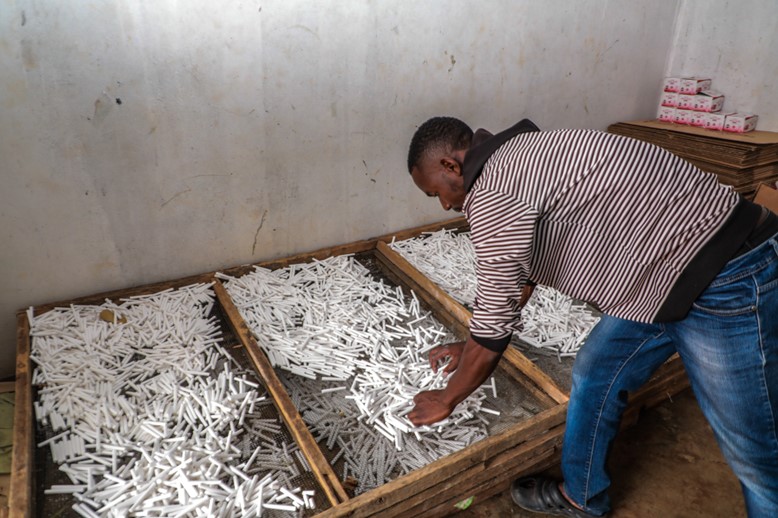 | 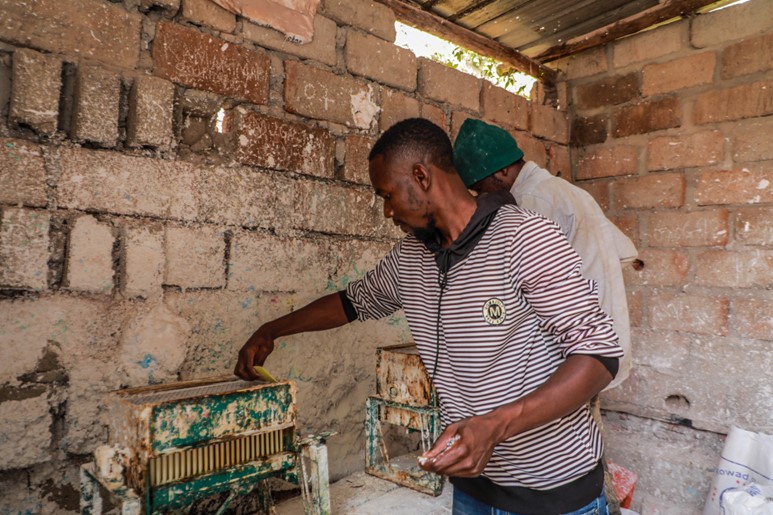 |
Francis actively engages in chalk-making alongside young men that he has employed to support him at the business. With this business, Francis has not only provided for his family but also offered employment to fellow young people. ©IRC/Jonathan Ssekitondo
“I can say that indeed Kulea Watoto changed my life,” he says, gratitude evident in his voice. “The training on mindset change helped me to see solutions in every obstacle. I was overwhelmed with my small machine, unable to keep up with demand but I felt I would change my fortunes. With the cash grant, I was able to purchase a new molding machine that significantly increased my production capacity which means I now sell more and earn a lot more. I can ably provide for my young family’s basic needs including nutritious meals, medical care and a good foundation at early learning centers.”
Operating his business costs less than Sh100,000, with a 40 kg bag of chalk powder priced at Sh75,000, and additional costs for water and lubricants. Banda now distributes chalk to over 30 schools, including some in his native South Sudan, earning a minimum of Sh4 million ($1,200) per term. The growing demand has demanded that he expands his workforce, employing nine people at his factory.
“I’m now positively impacting people around me,” Banda shares. “I have four fathers helping with production every day, and five mothers who come in every Tuesday and Friday to assist with packaging of the chalk. They, too, are earning money to support their young families, providing basic needs and ensuring that their children are in school.”
Thanks to the Kulea Watoto Project, Banda not only meets the demands of a burgeoning market—including extending his reach to Juba in South Sudan—but also provides for his family and supports his children’s education. His journey is a powerful testament to resilience, the strength of impactful development partners’ support, and the unwavering commitment of a father determined to build a brighter future for his children.
